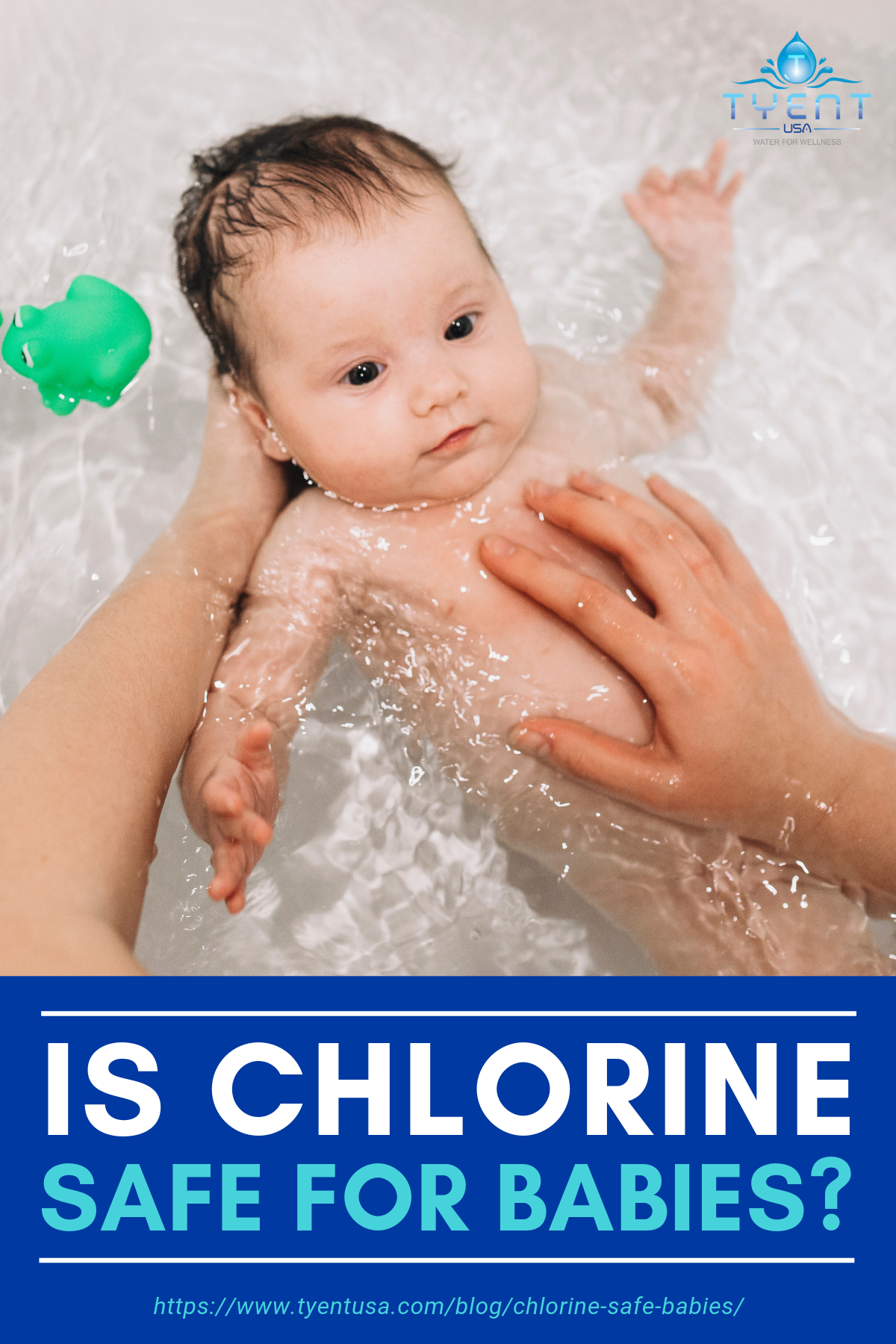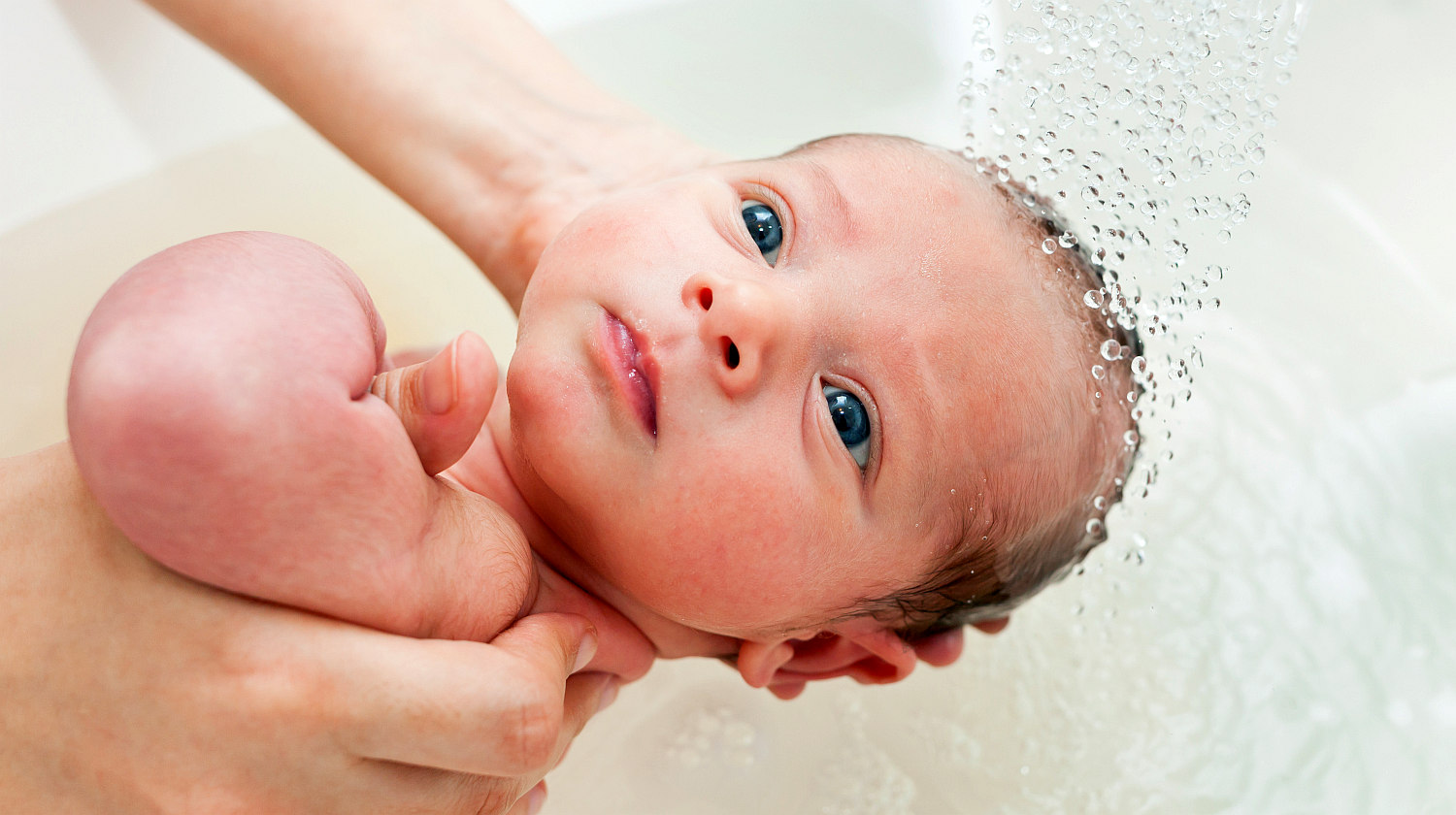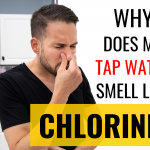Chlorine makes drinking water safe and pool water clean, but is it safe enough for babies and young children? Read on to know more.
RELATED: Rid Yourself Of Cancer-Causing Chlorine With A Sleek Tyent Shower Filter
In this article:
- What Is Chlorine?
- Where Does Chlorine Come From?
- How Are We Exposed to Chlorine?
- Who Is Sensitive to the Effects of Chlorine?
- Why Is Chlorine Dangerous to Children’s Health?
- What Are the Health Risks of Chlorine for Babies?
- How Can We Combat Sensitivity to Chlorine?
- When Should I Consult My Doctor About My Child’s Chlorine Exposure?
To Drink or Not to Drink: Is Chlorine Safe for Babies?
What Is Chlorine?
Chlorine, a nonmetallic element, is one of the basic building blocks of matter. It’s a naturally-occurring gaseous halogen which can also be highly irritating.
It is greenish-yellow in color and it has the capability to combine with almost all other elements in the periodic table. Chlorine in its solid or liquid form is a powerful bleaching, disinfecting, and oxidizing agent.
But in its gaseous form, it can be poisonous and lethal. Chlorine gas was even used as a chemical weapon during the First World War.
Where Does Chlorine Come From?
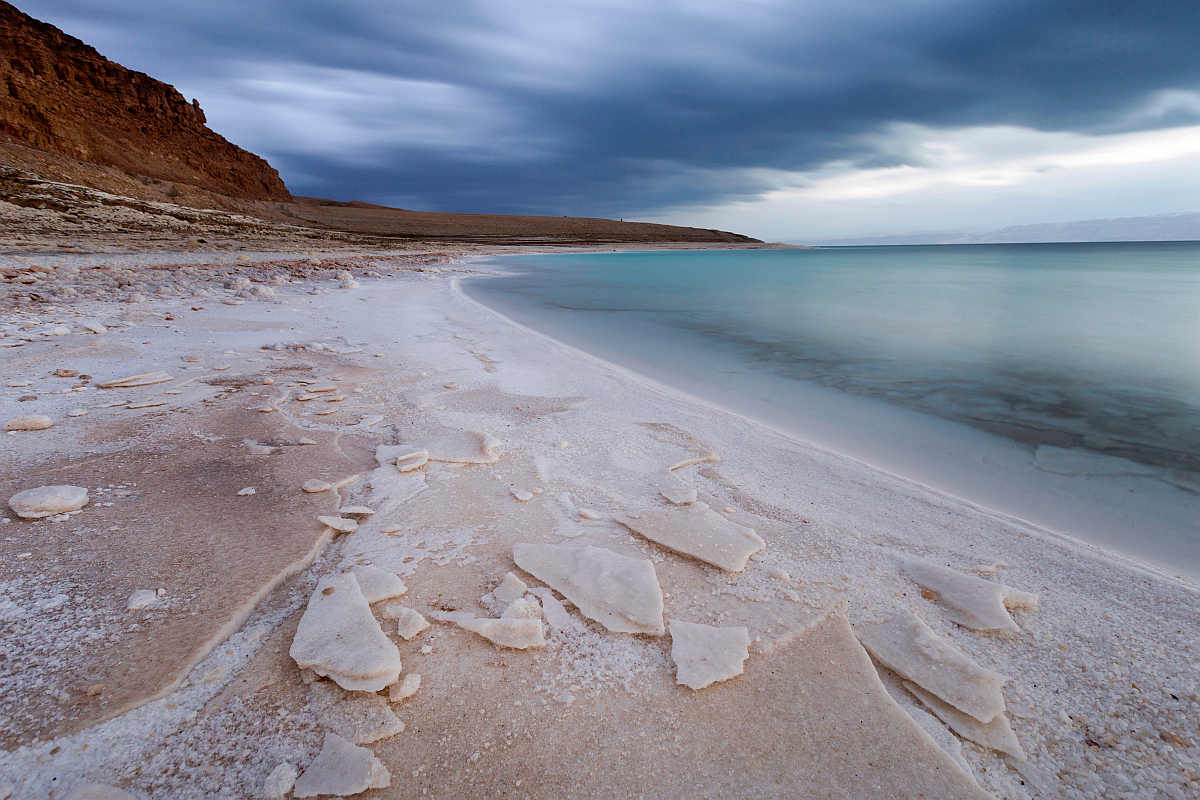
As a naturally occurring chemical element, chlorine is scattered throughout the earth with high concentrations in salty seas.
Produced from ordinary salt, chlorine is one of the most abundant and essential nutrients on earth. It is also an essential, natural mineral for animals and plants.
How Are We Exposed to Chlorine?
Chlorine is added to drinking water to make it safe for consumption. It can kill harmful pathogens, like bacteria, viruses, and protozoa which can cause diseases.
Chlorine dioxide is a yellowish-green colored gas which dissolves in water. It’s the most common chemical for water treatment.
Although it’s an agent used to make water clean and safe, prolonged and constant exposure to chlorine dioxide can be harmful to our health.
Although common in pools, chlorine exposure can come in many other forms. These include consuming bottled water, public drinking water, and even food.
Who is Sensitive to the Effects of Chlorine?
Chlorine is a chemical element used for a wide variety of industries including public drinking water, swimming pools, and cleaning detergents.
Babies and young children are much more sensitive to it than adults. When they become exposed to this chemical through tap water and pool chlorine, it can pose a number of health risks.
RELATED: 13 Reasons Why You Shouldn’t Drink Tap Water
Why Is Chlorine Dangerous to Children’s Health?
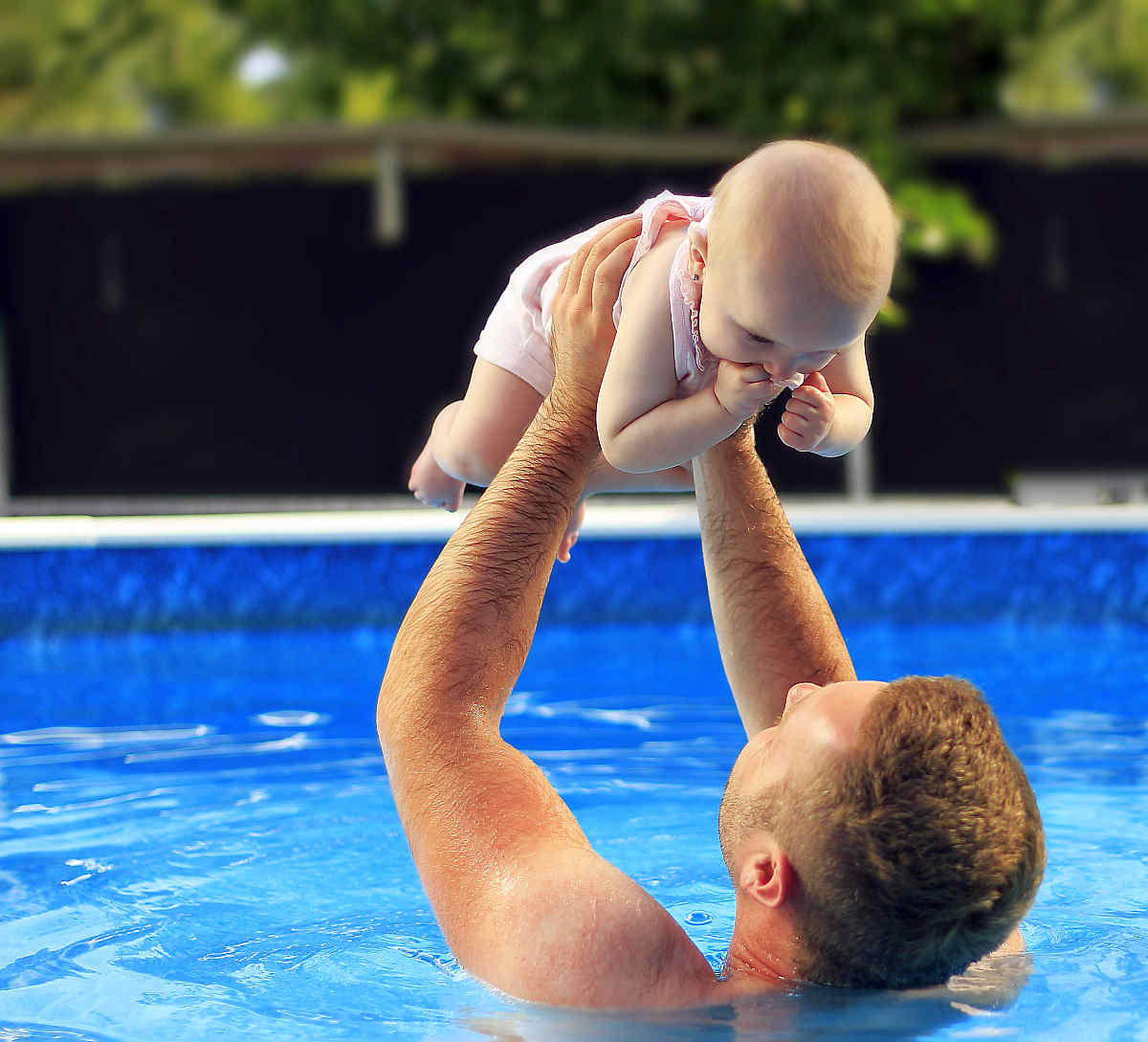
Babies and young children are more vulnerable to chemicals and environmental contaminants. Their behavior and habits can expose them to hazards.
Families normally take their children out to swim in public pools. The high levels of pool chlorine in some places can be harmful.
New research indicates that children who frequent chlorinated pools may increase their risks of developing asthma or allergies. Inhaling the chlorine fumes accumulating around pools is unhealthy.
What Are the Health Risks of Chlorine for Babies?
Babies are highly sensitive and delicate. Whatever babies become exposed to will infiltrate and affect their bodies.
If they drink unfiltered tap water, babies will also ingest harmful chemicals like chlorine, heavy metals, nitrates, fluoride, plastics, and pesticides.
Always be cautious about what you are exposing young children and infants to. Chlorine poses several health risks for babies like the following:
- Respiratory Problems: Chlorine exposure can tighten airways and cause breathing difficulties. It is also related to an increased risk of developing asthma and lower respiratory tract infections in infants.
- Skin Problems: Bathing babies and young child in tap water can cause skin irritation. Reactions to chlorine include dryness, red skin, and itchy skin with bumps. You can try using a water filter for their bath water.
- Heart Problems: Chlorine exposure can also cause heart problems in infants and fetuses. Research shows a link between chlorinated water and cardiac defects in infants. Trihalomethanes (THMs), a compound in chlorine, increases the risk of holes in the heart, anencephalus, and cleft palate. This can lead to the underdevelopment of the brain, skull, and scalp in babies.
How Can I Protect My Baby’s Skin From Chlorine?
Going for a swim or drawing a bath? There are a few ways to protect your baby’s sensitive skin from chlorinated water.
- Before your baby gets in the water, apply a thin layer of gentle moisturizer or petroleum jelly to all of your child’s skin.
- Immediately after swimming, rinse your child’s skin thoroughly with warm water.
- Use a shower filter or bath ball filter when bathing your baby (or yourself!). These can improve the pH levels of your bath water and reduce free chlorine.
- Within a few minutes of rinsing or bathing, gently pat your baby’s skin using a towel but leave a little bit of moisture. Apply your child’s lotion or moisturizer to slightly damp skin.
How Can We Combat Sensitivity to Chlorine?
Chlorine is a natural irritant, but it doesn’t mean we should walk away from pool time activities for good. There are a few, simple ways to combat discomfort from chlorine irritation in our skin, eyes, and respiratory tracts.
After every swim in the pool, rinse your skin thoroughly with non-chlorinated water. Everyone has different skin reactions to the chemical but it can often appear as itchy red rashes.
Give your skin a thorough scrub and cleaning because chlorine can leave a film on your skin which will continue to dry it out. Apply moisturizer to keep skin hydrated and to avoid developing dry and irritated patches.
Cover your eyes and protect them from irritation after a swim by rinsing them with cool, fresh water.
Even when you or your child uses goggles, chlorine particles in the air can still affect the eyes. For added relief, use saline drops on your eyes immediately after swimming to drastically decrease itchiness and pain.
Get tested and treated for respiratory problems and sensitivity. Symptoms include a consistent cough which worsens at night after swimming, runny nose, shortness of breath, and chest tightness.
Substances called chloramines are the main source of respiratory sensitivity and discomfort after exposure to pool chlorine. These chloramines occur when pool water or liquid chlorine reacts with ammonia, a naturally occurring element found in oils, urine, and most disinfectants.
The resulting combination hovers and stays just above the pool surface, so it’s impossible for swimmers to avoid chloramines when taking a breath.
When Should I Consult My Doctor About My Child’s Chlorine Exposure?
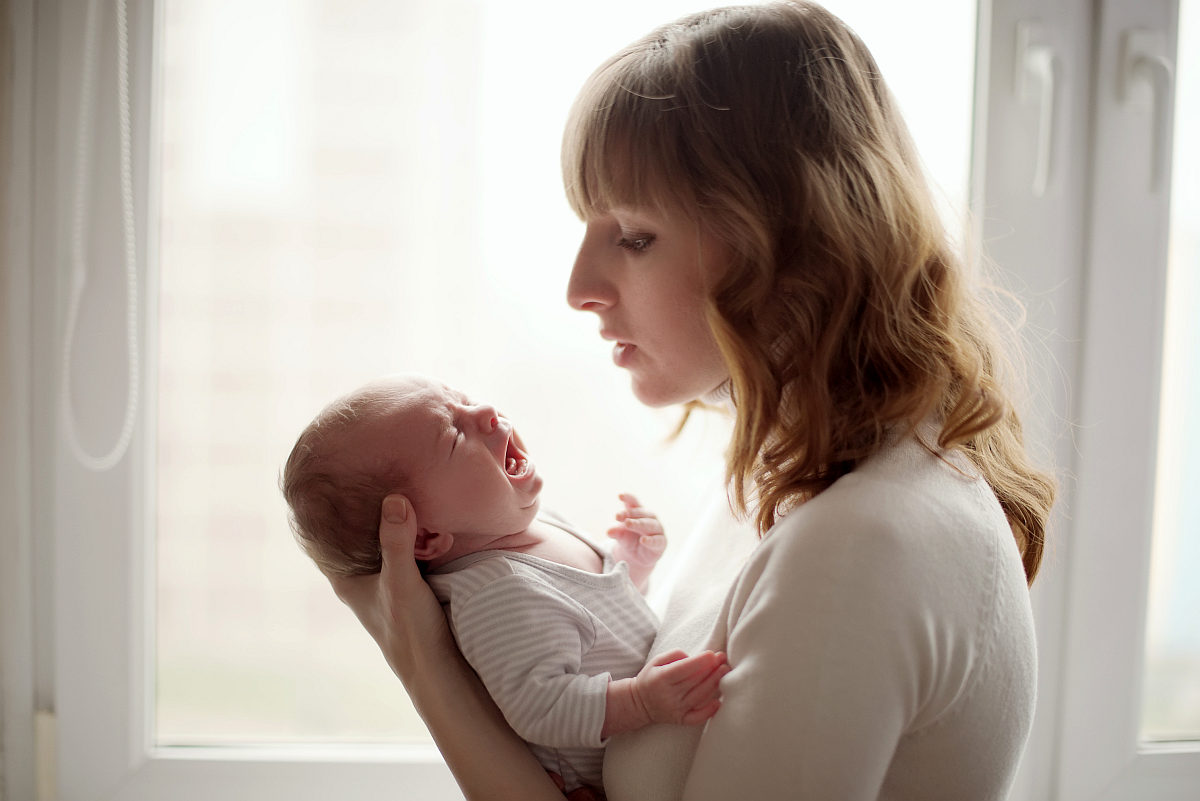
Be on the lookout for symptoms of exposure to dangerous and high concentrations of chlorine in your child. If the following signs develop after swimming, bathing, or drinking unfiltered water, contact your healthcare provider immediately:
- Blurry vision
- Watery eyes
- Burning pain, blisters, or redness on the skin if exposed to chlorine gas
- Skin injuries similar to frostbite if exposed to liquid chlorine
- Burning sensation in the eyes, throat, and nose
- Intense coughing
- Tightness in the chest
- Shortness of breath or difficulty breathing
- Fluid in the lungs or pulmonary edema which may be delayed for a few hours
- Vomiting and nausea
Chlorine makes water safe to drink and use but too much can be a health hazard.
As with any other potentially harmful substance and chemical, knowing the risks is crucial. This can also help you prevent further health complications and discomfort.
How do you keep your babies’ sensitivity and exposure to chlorine in check? Share your tips with us in the comments below!
Up Next:
- Summer Fitness Goals? Water Ionizers Can Help
- 5 Spring Destinations!
- What Exactly Is pH Level And Why Should I Care?
